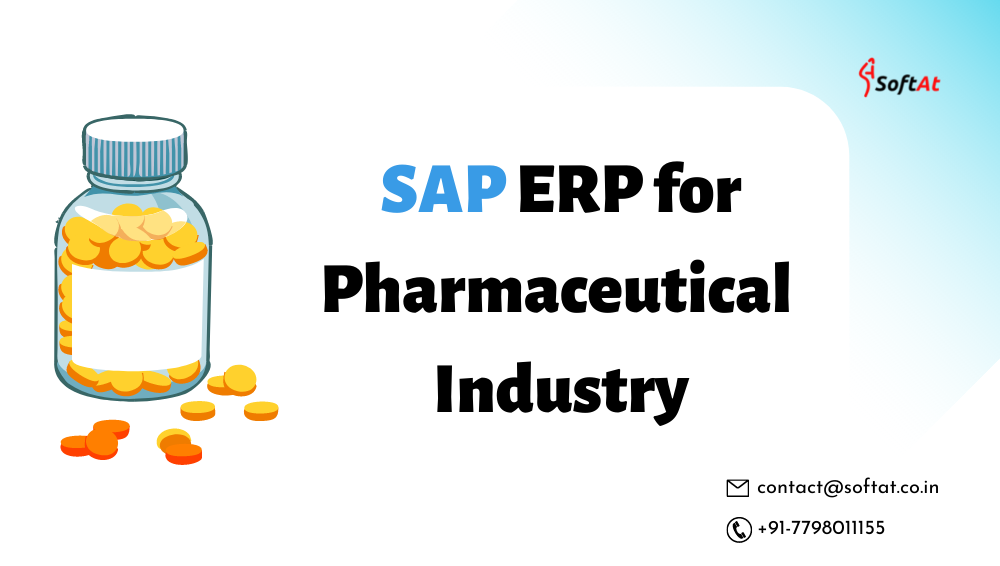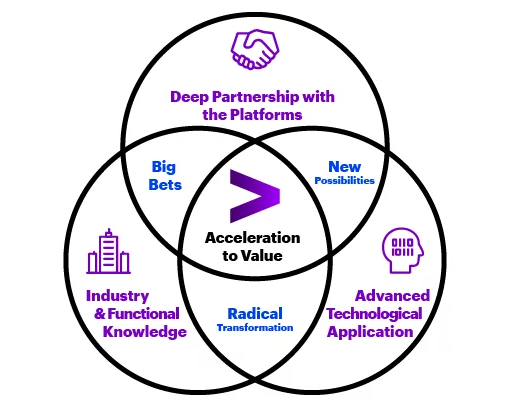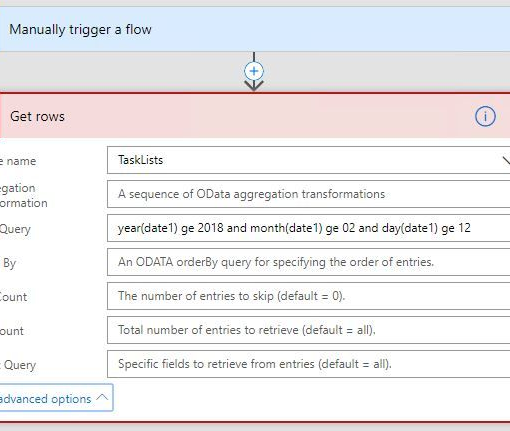What is SAP in Pharmaceutical Industry?
SAP ERP for Pharmaceutical Industry is responsible for the production and sale of medicines. Pharma companies must pay special attention to every minute aspect of the manufacturing process because they deal with patients’ health. SAP ERP solutions can automate manufacturing processes, reducing human error and saving time and money. Our integrated systems can also monitor and manage other associated business operations such as accounting, sales, finance, and customer relationship management.
The healthcare industry focuses mostly on the production of pharmaceuticals so that patients’ health can be properly maintained. The pharmaceutical and life science sectors develop market products that have been well researched and can be utilized to treat patients effectively. SAP ERP for Pharmaceutical Industry plays a vital role in healthcare.
Which SAP module is used in pharmaceutical company?
In a pharmaceutical company, several SAP (Systems, Applications, and Products in Data Processing) modules can be used to streamline various processes and manage different aspects of the business. Some of the key SAP modules that are commonly utilized in pharmaceutical companies include:
- SAP Pharmaceutical (SAP Pharma): This module is specifically designed to cater to the needs of the pharmaceutical industry. It helps in managing processes related to drug development, manufacturing, quality control, regulatory compliance, and sales.
- SAP Supply Chain Management (SAP SCM): This module focuses on optimizing the supply chain operations, including inventory management, demand forecasting, procurement, and distribution. It is critical for pharmaceutical companies to ensure a steady supply of raw materials and products.
- SAP Quality Management (SAP QM): Quality is of utmost importance in the pharmaceutical sector. This module helps companies to maintain and monitor product quality throughout the entire production process and comply with industry regulations.
- SAP Plant Maintenance (SAP PM): This module assists in managing the maintenance of equipment, machinery, and facilities in pharmaceutical manufacturing plants. Proper maintenance is crucial to ensure the production process runs smoothly and efficiently.
- SAP Sales and Distribution (SAP SD): This module deals with the management of sales processes, including order processing, pricing, billing, and customer management. It is essential for pharmaceutical companies to manage sales orders and customer relationships effectively.
- SAP Financial Accounting (SAP FI) and SAP Controlling (SAP CO): These modules handle financial aspects such as accounting, financial reporting, budgeting, cost accounting, and profitability analysis.
- SAP Human Capital Management (SAP HCM) or SAP SuccessFactors: These modules are utilized for managing human resources, including employee data, payroll, time management, training, and performance evaluation.
- SAP Regulatory Information Management (SAP RIM): This module helps in managing regulatory information and compliance data, ensuring that pharmaceutical companies adhere to the necessary regulations and submit required documentation.
It’s worth noting that the specific modules implemented in a pharmaceutical company may vary depending on its size, scope of operations, and individual requirements. Many companies may use a combination of these modules to create an integrated system that supports their unique business processes and complies with industry regulations.
SAP Business One for Pharma Industry
In comparison to other manufacturing companies and industries, each pharmaceutical company faces distinct problems. Not only does it have to address those challenges in the best possible way but also matches up to the pace at which it is growing. New research and growing innovations expand the industry’s frontiers, allowing it to grow a little more each day. SAP Business One services address all of the industry’s difficulties, innovations, and advances, allowing it to expand.
SAP Business One uses an automated approach to create a unique drug manufacturing solution. It provides a single comprehensive solution for managing all activities such as economic management, finance, sales, accounting, manufacturing, and customer interactions. In addition, pharmaceuticals are manufactured in strict accordance with government norms and regulations.
High operational expenses, compliance with laws, a lack of infrastructure, complex supply management, and distribution system, and tight pharmaceutical rules are just a few of the issues that this industry faces. They are constantly looking for methods to cut costs, comply with rules, boost efficiency, and deliver better results as an industry. The following are some of the ways SAP solutions can help:
1. Identifying problems with ease
Identifying and anticipating potential dangers is one of the most effective ways of dealing with a situation. SAP ERP for Pharmaceutical Industry, on the other hand, is bombarded with vast amounts of data. Details can get buried in them, and tracing the problem’s genesis back to data might be difficult. Not only does it waste time and effort, but it also jeopardizes the product’s quality and integrity. You don’t want to be stuck on your story with a stack of files and papers, trying to figure out what went wrong or what might go wrong. Instead, deploying SAP will assist businesses in precisely evaluating data, recognizing future and existing problems, and resolving them before more damage is done. It identifies and considers problems in different phases such as manufacturing, raw material, quality control, supply chain, and packaging.
2. Smooth execution of various business strategies
The pharmaceutical industry relies heavily on research and development, according to SAP Business One partners. Several business strategies are established on paper based on accessible data, but they must also be translated into reality. Business tactics not only include increasing sales but also recognizing market opportunities, building positive relationships with consumers and vendors, and being informed about the medical industry. SAP’s Customer Relationship Management (CRM) module and many functionalities address all of these concerns. It aids businesses in conducting detailed market research, collaborating with concerned medical members, and successfully executing campaigns across many platforms. After all, techniques won’t work if they’re limited to the papers on which they were developed.
3. Tracking of products
It is common knowledge that pharmaceutical companies cannot afford to make even minor errors because a single bad batch of drugs can affect a person’s physical well-being, with extreme cases culminating in death. This would set off a chain reaction that would damage the company’s reputation and put its survival in jeopardy. In the event that such a crisis arises, businesses should be able to track down the affected products as quickly and accurately as feasible. SAP Business One services make it possible to do so without using paper. Tracking and monitoring products become considerably easier and more accurate with third-party peripherals like RFID technology or auto ID equipment.
4. Maintaining compliance
Maintaining compliance is one of the most important components for every pharmaceutical company. This rule does not have any exceptions. Because of the sensitive nature of this industry, its goods, and the potentially detrimental impact it can have on consumers, healthcare agencies have devised a set of laws and regulations that must be followed. SAP provides a variety of capabilities and modules to assist businesses in adhering to these standards. Furthermore, these elements are adaptable, allowing for compliance with a variety of organizational procedures.
Key Modules for SAP Business One for Pharma Industry
- Accounting and Financials: Access all financial and accounting activities like accounts receivables, payables, journal entries, budgeting, and financial management in one go.
- CRM & Marketing: Stay ahead of competitors with Opportunity and Pipeline Management, Customer Relationship Management and Campaign Management.
- Sales and Distributions: Improve your sales orders, quotations, deliveries, receivables, etc., and gain more customers.
- Purchasing and Operations: Optimize and automate your procurement processes and bring efficiency to operational procedures with purchase requests, quotations, orders, and Down payment invoices and requests.
- Batch Production & MRP: Materials Requirement Planning and Production principles, Bill of Materials, Goods Issues, and Goods Receipt are followed and bettered with the help of SAP B1.
- Formulation & Packaging: Advance Planning and Scheduling, Cost Calculation, compliance requirements all met by SAP Business One: Advance Planning and Scheduling, Cost Calculation, compliance requirements all met by SAP Business One.
- QC / QA – Quality Control/Assurance: Manage Quality parameters like Product batch and lot quality, Delivery Performance, Claims accuracy, Product upgrades, and downgrades with the help of SAP B1.
- Inventory and Warehousing: Get real-time information on inventory levels and batch movement, Goods receipts, and Goods Issued so that the manufacturing process is made more efficient.
- Plant & Maintenance: Purchasing, Financing, Billing, calculation of Assets, maintenance, use SAP B1 to implement all of them and ensure that the plant functions smoothly.
- Customer/Dealer/Vendor / Employee Portal: Empower your customers/dealers/vendors with a portal having security, flexibility, and self-serviced gateway features so that they are in complete control of their accounts.
- Mobility & Analytics: Now power your decisions with business analytics features of SAP B1 and access on any device like iPad, mobiles, desktops, etc.





